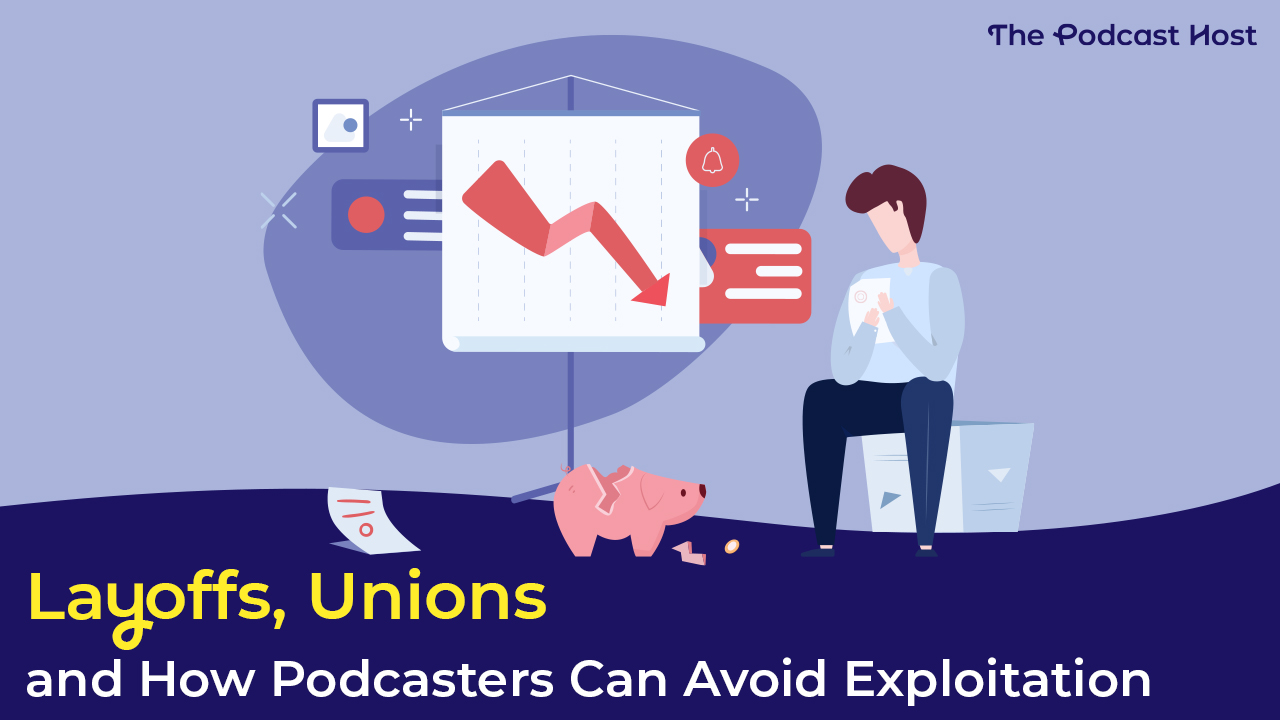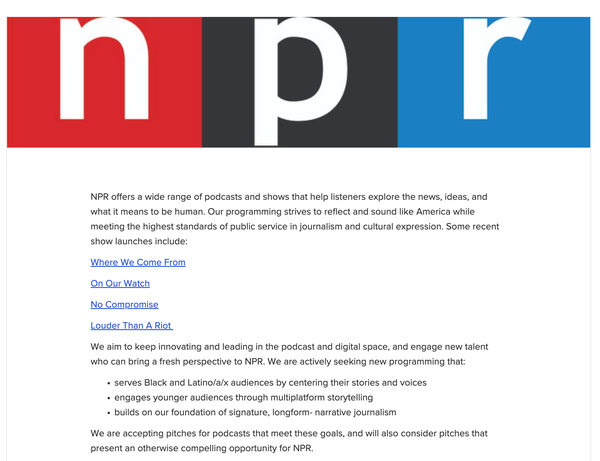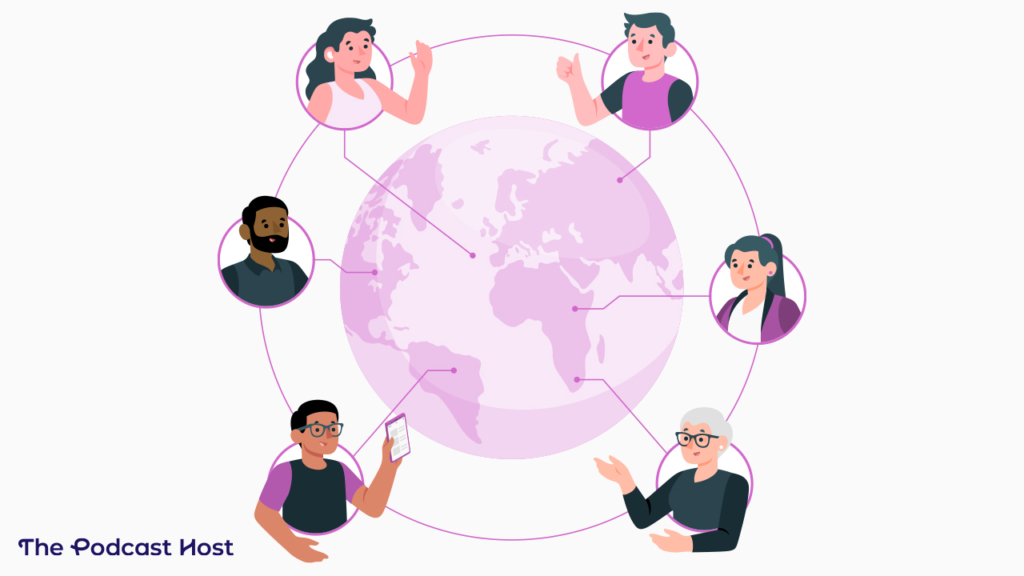Layoffs, Unions, and How Podcasters Can Avoid Exploitation

Recently, NPR announced a projected $30 million decline in revenue and ceased production on four podcasts. All in all, they made 10% of their staff redundant. However, as Ashley Carman reported for Bloomberg, thirteen employees won’t leave just yet. They’re members of a trade union that far outdates podcasting. Broadcast media labor unions have decades of bargaining experience and influence honed over generations. To maintain long-term career stability, podcasters and labor unions need each other’s trust.
What Happened with NPR’s Layoffs?
NPR laid off 84 employees and ceased production on Invisibilia, Louder Than a Riot, Rough Translation and Everyone & Their Mom. The affected workers are definitely not taking it lying down.
NPR’s Programming, Race and Diversity
Much of a recent all-hands meeting focused on NPR’s stated commitment to race and diversity. To understate it for brevity, this is a big deal. Some of NPR’s stated goals are “to reflect and sound like America while meeting the highest standards of public service in journalism and cultural expression” and “actively seeking new programming that serves Black and Latino/a/x audiences by centring their stories and voices.” NPR encourages podcast submissions. Their Submission Manager site uses Louder Than A Riot as an example of their preferred programming.

The juxtaposition of public radio and race is a topic that could fill an entire doctoral thesis. Clearly, management choices took a hairpin turn, and not for the more inclusive.
Radio and Labor Unions: A Historically Beneficial Relationship
One point in Carman’s report of NPR’s all-hands meeting sticks out:
Thirteen roles in the organization’s digital team are also planned to be cut, but that group unionized through a separate union for broadcast employees and technicians and haven’t yet agreed on a contract with NPR, despite the organization voluntarily recognizing them. This means they cannot be laid off until a contract or separate lay-off agreement is met.
Ashley Carman, “Tensions Flare Inside NPR After Staff Layoffs and Town Halls,” Bloomberg.com, March 30, 2023
The union in question is The National Association of Broadcast Employees and Technicians, a sector of the Communications Workers of America. Established in 1937, this organization represents professional and non-professional television, radio, film, and media production employees. The jobs overlap with positions in the Podcast Taxonomy, such as audio engineers or media coordinators. In this case, podcasters and labor unions fall into a limbo that’s a learning experience.
Legacy media labor unions protect many other podcasting jobs. Screen Actors Guild protects anyone who performs in front of a camera or microphone. They cultivate agreements for New Media for any budget. The Writers’ Guild of America Audio Alliance protects writers.

How Can Labor Unions Help Podcasters Keep Career Stability?
New technology means new kinds of businesses and new opportunities for workplace burnout (even video game workers are unionizing). Some workers need to start their own unions from the grassroots up. Fortunately, unions that have been around for decades tend to offer support. When Starbucks Workers United protested union-busting efforts, the NFL Players’ Association and The AFL-CIO hosted a rally with them. Podcasters and labor unions can spread each other’s message and sustain each other.
Gimlet, Parcast, Crooked Media, and other podcast networks unionized with WGA East after their acquisition by bigger companies. iHeartMedia’s employees followed suit soon after. These union relationships have provided protection in notable recent examples, like Reply All’s unfortunate “Test Kitchen” situation at Gimlet Media.
Having a big company pay the bills while you work full-time in podcasting seems great. Consider, though, that when Parcast first negotiated a contract with Spotify, one goal was a 12-hour rest between work days.
It’s true that the image of workers at media companies like Gimlet can be glamorized. People have asked these workers what more they could want from their jobs. Yet, as the unnamed employee, a longtime worker in radio and podcasting, said, “I’m recognizing that so much of what we’re doing, the idea is to change things for people coming into this industry and for people starting their careers.”
The employee added, “We sincerely love our job.”
Sarah Jaffee, “Union Bargaining at a Podcasting Giant,” The American Prospect, March 11, 2021
Your podcasting skills can take you to many different kinds of jobs. Some promise long-term stability, while others don’t. Some promise long-term stability and then can’t. Labor unions like NABET-CWA, SAG-AFTRA, the WGA, and many more have a long history of collective bargaining with corporate entities. Cooperation and experience over time, like water on stone or compound interest, are some of the most powerful forces in the universe.
Plus, labor union membership can get you discounts for online training courses and travel perks like hotel and car rental discounts. Yes, you have to pay dues. But can you really put a price on a predictable work schedule and fair treatment?
How Can A Podcaster Join (Or Start) a Labor Union?
Typically, when a company hires you under a union contract, you contact the relevant labor union’s membership department. Use your paycheck stub as proof of employment. For example, if you work at a radio station as an audio engineer, you’d contact NABET-CWA, and fill out forms. In the UK, check in with the Broadcasting, Entertainment, Communications and Theatre Union. They “represent over 40,000 staff, contract and freelance workers in the media and entertainment industries.”
That’s great for people with radio or TV jobs. What about independent podcasters and labor unions?
Let’s say that a bigger organization, like a radio network or a tech company platform, picks up your podcast. Check The Podcast Taxonomy and find the role that most closely fits what you do for your podcast. Find the union most relevant to your job title and contact them about organizing a union. The WGA Audio Alliance has podcast industry organizing resources for fiction and non-fiction podcasters in the US. In the UK, the Trades Union Congress can help you find the union that fits the work you do.
Podcasters and labor unions need to connect sooner rather than later. Joining a labor union when your podcast is doing well is easy. If someone’s made your workplace a nightmare, the additional stress complicates the process.

Podcasters and Labor Unions: Independent, Together
Like other digital media, people associate podcasting with startup culture. Nick Quah summarized the aforementioned Reply All and Gimlet controversy for Vulture, saying,
“The story of what happened at Gimlet Media is not unique: In many ways, it’s a classic story about start-up culture. Gimlet…has been billed as one of podcasting’s biggest success stories, yet its meteoric rise papered over the managerial problems within the company.”
Nick Quah, What Went Wrong at Gimlet? Vulture, Mar 10, 2021
Meanwhile, corporations could see intrinsically motivated podcasters the same way that R.K. Maroon saw toons in Who Framed Roger Rabbit. “…and the best part is, they work for peanuts.” Instead of resting on assumptions, podcasters and labor unions can work together. They can use generations of experience to make stable workplaces. Together, they can continue to innovate and experiment with messages, story, and craft.
